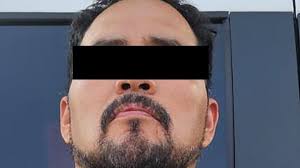Governor Gavin Newsom signs the CARS Act, imposing strict transparency rules, banning junk fees, and granting used-car buyers a three-day return right.
Governor Gavin Newsom has signed a law that redefines the automotive trade in the Golden State. The new regulation, known as the California Auto Sales Scams Prevention Act (CARS), introduces stricter controls on car dealerships and aims to protect consumers from deceptive practices in the purchase or lease of new and used vehicles.
“California is continuing to stand up for consumers by banning unnecessary fees and eliminating practices that contribute to growing costs and hassles for families.” Said Gavin Newsom
SB-766: Protection Against Auto Sales Scams and False Promises in California
SB-766, signed by Newsom on October 6, marks a turning point in California’s retail auto industry. According to an official statement from the state government, the law seeks to make the car-buying process more transparent and strengthens consumer protection laws to prevent vehicle retailers from adding unnecessary add-ons and other features that do not benefit buyers.
The CARS Act, which is already in effect, impacts every stage of the car sales process—from advertising to the final delivery of the vehicle.
The measure establishes penalties for dealerships that misrepresent key information about a vehicle’s price, financing, or availability. It also prohibits dealerships from falsely claiming affiliation with or endorsement by any state or federal government agency.
One of the key pillars of the new law is complete transparency in commercial communication.
Beginning in October 2026, dealerships must include the total price of a vehicle in every advertisement or written quote, with no hidden or additional fees. This total price must also appear in the first written communication between the dealer and the buyer.
Additionally, all financing-related amounts and monthly payments must be clearly disclosed, along with the total cost of the transaction.
The law prohibits charging for services or add-ons that offer no real benefit to the consumer. This includes, for example:
- Service contracts that are invalid due to prior vehicle damage
- Charges for unnecessary maintenance
- Products that cannot be applied to certain models, such as oil changes for electric vehicles
Dealers must explicitly inform buyers that add-ons are optional and that the vehicle purchase does not depend on accepting them. Moreover, dealers are barred from charging immediately for these products — consumers now have 10 days to make payment, a safeguard designed to prevent high-pressure sales tactics.
Among the most notable provisions of the CARS Act is a three-day cancellation right for used-car buyers whose purchase price is $50,000 or less.
During that period, the buyer may return the vehicle without providing a reason, as long as the car is undamaged and has not been driven more than 400 miles (640 kilometers).
Dealers may charge a restocking fee, within limits defined by the law.
If the buyer traded in a vehicle and the dealer has already sold it, the dealer must reimburse the greater of the agreed trade-in value, the resale amount, or the vehicle’s market value. The full refund must be completed within 48 hours of the cancellation.
The new legislation also requires dealerships to retain all contracts, advertisements, and documents related to sales or cancellations for at least two years.
This measure is intended to facilitate audits and ensure compliance with the law, creating a stronger system of oversight within California’s auto market. It reinforces accountability and transparency in a sector that plays a key role in the state’s economy.








